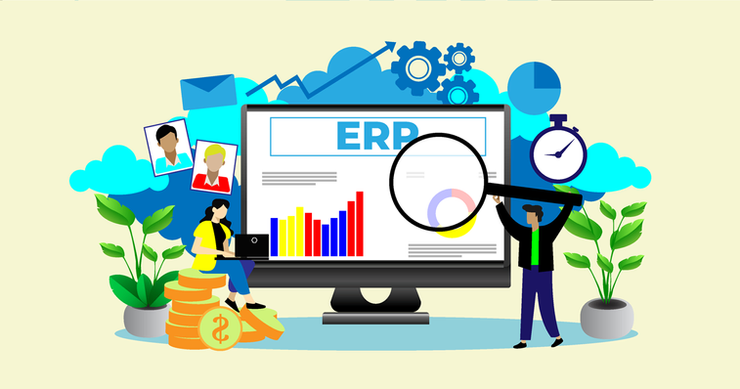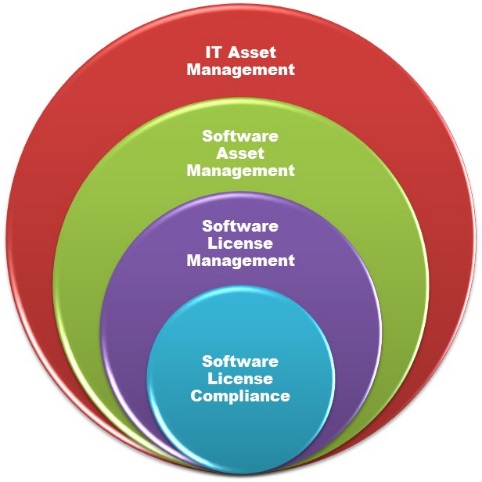1. Setting Sail into the ERP Horizon: A Strategic Overview
Embarking on a journey into the world of ERP (Enterprise Resource Planning) software unveils a landscape where businesses gain a strategic advantage. Serving as the central nervous system, ERP integrates diverse functions like finance, procurement, and supply chain management into a cohesive platform. This synchronization not only streamlines operations but also facilitates data-driven decision-making. Whether steering a startup or a multinational enterprise, the scalability of ERP positions organizations for long-term success in today’s competitive business terrain.
In the realm of ERP, efficiency is king. The automation of repetitive tasks, such as order processing and inventory management, not only accelerates operations but also significantly reduces the margin for errors. Moreover, ERP’s centralized database ensures data accuracy, fostering collaboration across different departments. The analytics tools embedded in ERP empower organizations to glean valuable insights from their data, providing a strategic edge by predicting market trends and optimizing operations.
2. Navigating HRMS Waters: Streamlining Human Capital Management
Human Resource Management System (HRMS) software stands as the navigational beacon in the turbulent waters of human capital management. With its automated processes covering recruitment, payroll, and performance evaluations, HRMS transforms HR departments into efficient strategic hubs. Acting as the organizational memory, HRMS ensures data accuracy, compliance, and seamless management of the workforce.
Beyond its administrative prowess, HRMS empowers employees through self-service features. This modern approach allows employees to access and update their information effortlessly, fostering a culture of transparency. The positive impact on employee satisfaction and engagement is a testament to HRMS not just as a tool but as a catalyst for a positive workplace culture. In a competitive talent market, HRMS simplifies talent acquisition and retention by offering a seamless and efficient HR management experience.
3. Harmony in Integration: ERP and HRMS Join Forces
The collaboration of ERP and HRMS marks a significant turning point in organizational efficiency. This integration ensures a synchronized flow of data, facilitating efficient workforce planning based on real-time financial insights. The harmony between these systems enhances operational efficiency, guarantees compliance, and facilitates strategic decision-making. The collaboration of ERP and HRMS is the cornerstone of modern business success.
4. Efficiency Redefined: ERP’s Transformative Impact on Operations
In the age of digital transformation, ERP stands as a silent but mighty revolutionary. By automating routine tasks, it liberates employees to focus on strategic activities, amplifying efficiency and fostering a culture of innovation. Tasks such as order processing and inventory management, once arduous, are now handled with precision, accelerating business processes and improving customer satisfaction.
ERP is not just a software; it’s a strategic asset that offers businesses a roadmap to informed decision-making. The robust analytics capabilities provide access to accurate, real-time data, empowering organizations to make choices with confidence. In essence, ERP is akin to a GPS system, guiding businesses on the optimal route to their destination with minimal detours.
5. Elevating HR Management: HRMS as the Catalyst for Change
Human resources are the heartbeat of organizational success, and HRMS software serves as the catalyst for change in this crucial domain. Automating routine HR tasks, from payroll processing to leave management, HRMS enhances the efficiency of HR departments. This efficiency allows HR professionals to redirect their focus towards strategic initiatives such as employee development and engagement.
However, HRMS goes beyond administrative efficiency. Its self-service features empower employees, providing them with easy access to their data and enabling them to update personal details seamlessly. This transparency and empowerment contribute to a positive workplace culture, resulting in happier and more productive employees. In the competitive talent market, HRMS simplifies the challenge of attracting and retaining the best talent by offering a seamless and efficient HR management experience.
6. Synchronizing Success: The Marriage of ERP and HRMS
The seamless integration of ERP and HRMS results in a synchronized organizational ecosystem. Data flows effortlessly, allowing for efficient workforce planning based on real-time financial insights. This synchronization enhances operational efficiency, ensures compliance, and facilitates strategic decision-making. The collaborative potential of ERP and HRMS is the backbone of successful businesses today.
7. The Silent Revolution: How ERP Transforms Operations
In the face of digital transformation, ERP stands as a silent revolution. By automating routine tasks, it sets employees free to direct their energy towards strategic pursuits, thus amplifying efficiency and fostering a culture of innovation within the organization. Tasks such as order processing and inventory management, once labor-intensive, are now handled swiftly and accurately, accelerating business processes and improving customer satisfaction.
ERP is more than a software; it’s a strategic asset that offers businesses a roadmap to informed decision-making. The robust analytics capabilities provide access to accurate, real-time data, empowering organizations to make choices with confidence. In essence, ERP is akin to a GPS system, guiding businesses on the optimal route to their destination with minimal detours.
8. Optimizing Business Resources: The ERP Advantage
Efficient resource management is the backbone of organizational success, and ERP software takes center stage in optimizing this aspect. By streamlining resource allocation, ERP ensures that both human and material assets are optimally utilized. This efficiency in resource management leads to cost reduction, improved productivity, and a more competitive position in the market.
Furthermore, ERP offers a centralized repository for data, ensuring consistency and accuracy across the organization. This centralized approach enhances collaboration by providing different departments access to the same data, fostering a culture of transparency and teamwork. The robust analytics tools within ERP empower organizations to glean valuable insights from their data, enabling them to predict market trends and optimize operations.
9. Unlocking the HRMS Potential: Beyond Administration to Empowerment
Human Resource Management System (HRMS) software transcends traditional HR administration, unlocking a realm of empowerment for both HR professionals and employees. By automating a spectrum of HR tasks, from recruitment and onboarding to payroll processing and performance evaluations, HRMS transforms HR departments into efficient strategic hubs.
However, the impact of HRMS extends beyond administrative efficiency. Through self-service features, HRMS empowers employees to access and update their information effortlessly. This modern approach fosters a culture of transparency and convenience, leading to increased employee satisfaction and engagement. In a talent-driven market, HRMS simplifies talent acquisition and retention by offering a seamless and efficient HR management experience.
10. Strategic Synergy: The ERP and HRMS Advantage
The collaborative potential of ERP and HRMS is the cornerstone of strategic synergy in modern business. This integration ensures a synchronized flow of data, facilitating efficient workforce planning based on real-time financial insights. The harmony between these systems enhances operational efficiency, guarantees compliance, and facilitates strategic decision-making. The collaborative potential of ERP and HRMS is the backbone of successful businesses today.
In conclusion, the integration of ERP and HRMS is not just a technological advancement; it’s a strategic imperative in the dynamic landscape of modern business. As organizations strive for excellence, these systems provide the tools needed to streamline operations, enhance productivity, and gain a competitive edge. Mastering the dynamics of ERP and HRMS software integration is the key to navigating the complex seas of contemporary business challenges.




